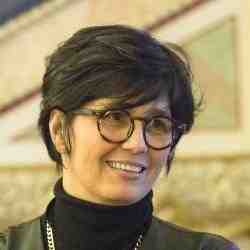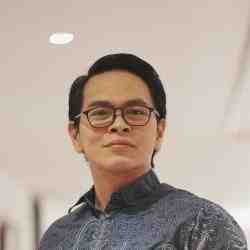Introdução
Atakan and Teyit are using the rising wave of misinformation in the reporting and sharing of information in digital and social media channels as an opportunity to enhance digital literacy in Turkey. By creating demand for trustworthy news on the individual user level, they are forming a platform that is empowering, enabling and encouraging citizens, key organizations and players in social and digital media to the backbone of a burgeoning field made up of citizens and journalists from all segments of society.
A nova ideia
Atakan and Teyit are seeing a unique opportunity in the shrinking space for independent media and the spread of misinformation and social media to build a field around media literacy that increases capacities of individuals and other key actors as digitally literate individuals capable of critical thinking, while also turning top down relations in receiving and spreading information into a more democratic, crowd-sourced and crowd-monitored process.
Atakan and Teyit are building this field by first equipping people to identify misinformation and hold the related sources and media agencies accountable. Then they are equipping the industry to better deal with the new media ecosystem and misinformation by increasing human capacity at journalism faculties, news agencies and any interested parties such as civil society organizations. Finally, they are acting as an incubator, encouraging others to develop tools and innovations to strengthen the digital literacy of individuals and organizations.
In less than two years, Atakan and Teyit have developed as a platform addressing the rising culture of misinformation, its manifestations in digital and social media channels and the lack of capacity among key professionals and citizens to handle this new phenomenon. Given the shrinking space for independent media and the rise of misinformation along with social media and digital tools in how individuals access and spread news around the world, Atakan’s idea has much potential for spreading.
O problema
With the rapid decline of independent media and high internet penetration in Turkey, digital and social media have become the primary news source in the country: 64% of the population reports Facebook while 30% reports Twitter as their primary daily news source. Yet, as digital and social media became the main source for information, they also became sources of misinformation, preventing the general public from making sound decisions and taking informed actions, be it in their daily life or in politics. Furthermore, individuals and communities who are already discriminated against become even more endangered, becoming targets of intense polarization and hate speech.
Although the tools and technologies for creating and spreading information are cheaper and faster than ever, having the tools does not necessarily come hand in hand with having an awareness or literacy on the users’ part on their active role and power: though many wish to be helpful and communicate, especially in crisis times, many end up spreading misinformation and further intensifying polarization between different societal groups. The problem is further intensified by digital and social media not just being a means for spreading, but also a primary source for producing information: mainstream media often turns to social and digital media for news and picks the most scandalous items due to its business model based on web site clicks.
Following the country-wide protests of 2013 (Gezi Park Protests), social clusters and networks on the social media have gained a new dimension as the main means of spreading news. Yet, in Turkey’s highly divided society along political, ethnic and religious lines, these clusters have become ripe with misinformation, intensifying the polarization and disconnect among citizen groups even more. With its polarized state, with many experienced journalists and academics either being imprisoned or fired from their positions, Turkey experiences this global problem much more intensely. Although there are several groups verifying news on a regular basis, there are no initiatives that aim to stop misinformation at its source by adopting a user-led approach that promotes literacy, provides tools and builds networks to address the issue.
A estratégia
On the first level, Atakan and Teyit are targeting users by using fact checking as a tool to develop their digital literacy and sensitivity towards misinformation. Rather than simply exposing misinformation and providing proofs to a passive audience, they are undertaking strategic fact checking on information that is urgent, important and/or viral, either by scanning themselves or by getting submissions from users themselves. They are then actively involving users to participate in the fact-checking process. Furthermore, they are producing guides and tools to make sure that users themselves can verify misinformation on their own. Finally, they are channeling the users’ soft power to make sure they play a watchdog function on the digital channels of mainstream media.
On the second level, Atakan and Teyit are sensitizing and educating key partners in media, academia and civil society to increase the human capacity of their emerging field. In a context where independent and experienced media is constrained, they are working with journalism faculties and umbrella organizations for journalists to provide toolkits and workshops on how to prevent production and spread of misinformation. In addition, they are offering train the trainers opportunities to data journalists, digital agencies and legal experts to spread their content to larger audiences. Finally, they have plans to form the first ever curriculum for universities, high schools and primary schools, as well as online education tools to spread their content even more.
On the third level, Atakan is building a platform where new actors and tools can meet and collaborate towards systemic change in the misinformation field together. He has already brought together the major fact checking organizations, journalists and academics together to form a brain team, while he having started incubating new products such as new software and new innovations that would make spread of misinformation harder. Finally, in the near future, Atakan has plans to bring together the country’s leading psychologists and sociologists to better grasp the phenomenon of misinformation in the Turkish context.
To date, Atakan and Teyit have reached 1.2 million distinct users by their verification, actively engaging over 100.000 users in their work, of which 10,000 actively send and verify information on a regular basis. There have been countless examples of main news agencies issuing apologies like Al Jazeera and CNN Turk, users participating in or doing their own verification. By strategically selecting over 200 cases per month, of which 3/4s are revealed to be fake, they have become the go-to place for knowledge and tools on how to navigate and increase digital literacy in Turkey. They have trained over 300 journalists and another 1000 journalism students and civil society activists who have become either Teyit volunteers and/or active users. In doing so, Atakan and Teyit are building a platform that strives for systemic change in the misinformation field and its normalization by citizens by interfering at multiple levels of the problem.
A pessoa
Born in the small town of Gelibolu, Atakan grew up dreaming to be a journalist in a town where there wasn’t even a bookstore. In his early high school years, he was quick to establish two initiatives which would serve as early apprenticeship opportunities in his social entrepreneurship journey: he established and led a political student group and initiated the first school newspaper which he funded with ads and in kind donations of the local small shop owners.
Leaving his hometown to pursue his dreams in the big city, Atakan studied political science in a top university in Ankara and was soon landing positions in prestigious media agencies like BBC Turkish. During this time, two experiences made him realize the power of misinformation and social media. Upon publishing an unverified piece of news on BBC Turkish’s website he realized how easy it was to spread wrong information. This was followed by him becoming a citizen journalist via tweeting the incidences during one of the most viral environmental lawsuits of that time: citizens’ revolt against a hydro dam construction. His tweets have become one of the first examples of citizen journalism practices in Turkey.
In the years that followed, Atakan’s realization grew deeper as traditional media kept losing ground and citizen journalism and digital media spread. He started building blocks of Teyit while he was still working as a journalist and soon quit to focus on it fulltime. Today, at the early age of 26, Atakan has become a symbol for trustworthy information and digital literacy in Turkey, with almost 50.000 followers on Twitter and with high school students establishing Teyit corners across the country.

 Tile image
Tile image Tile image
Tile image

